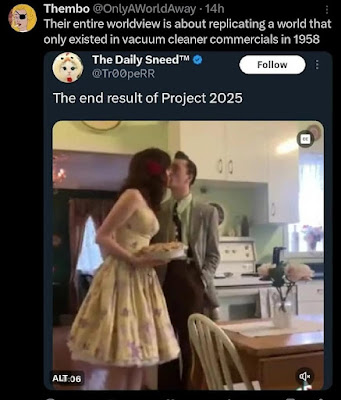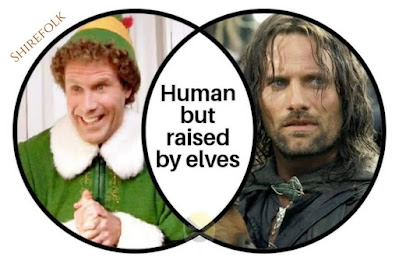
712. A tension between philosophy as a way of life and philosophy as a discipline: as a way of life, philosophy demands constant rethinking of everything—your previous rethinking, your goals, your motivations, your very identity and your place in a greater reality; as a discipline, philosophy demands adherence to “respectable scholarship” as determined by the inherently hierarchical and conservative structures of academia—do something novel, but not too novel.
713. The fundamental problem of all coffeemakers: you need to operate them before you’ve had your coffee.
714. Too philosophical to talk to regular people, not narrowly academic/manic enough to talk to most academic philosophers.
715. When people talk about “running out” of things to read or watch, I assume they must be confined to an underground bunker with a finite library of books and physical media videos and no internet access or streaming services.
716. Studying philosophy and other humanities can help you become a complex enough human to understand how to think and feel more than a single thing at once and how to avoid becoming ensnared by a single Culture War narrative. US Thanksgiving, for example, has a horrific historical legacy of colonialism and genocide, but it’s also a holiday about being grateful and feasting with loved ones. A sufficiently complex and interesting human can understand this without either hating America or excusing genocide.
717. Leaf blowers have to be among humanity’s most obnoxious achievements.
718. Life is suffering, sickness, old age, death, exploitation, and cruelty. But sometimes you see a blaze of red leaves in the low winter sun, and maybe life is worth it, after all.
719. Will some people someday refer to the Trump Era the same way people now refer to the Reagan Era? Or will it be worse?
720. Whenever I walk in the part of town where I live, it’s hard to avoid the feeling that most American cities are outrightly hostile toward the very idea that someone might consider walking somewhere.
721. I’m not even mad about it anymore, just deeply puzzled: why can’t people use their turn signals?
722. A lot of what passes for media criticism these days is impatiently unimaginative: just because the critic can’t imagine a rationale at first glance, the immediate inference is “bad writing” or “plot holes” or some other placeholder for “I don’t care for this, but I want to sound smart so I will engage in haughty, narrow-minded nitpicking.” This tendency has been exacerbated by the immediacy of internet criticism, a deepening of societal meanness overall, and the toxicity of certain fandoms, especially Star Wars. Personally, I don’t find this to be a meaningful way to enjoy art. But what do I know? My whole life has been badly written and filled with plot holes!
723. Barista: We're out of Early Grey. The only tea we have is this one [holds up a jar, proceeds to list a large number of non-tea ingredients]
Me: So... no actual tea?
Barista: It's herbal tea.
Me: [Not wanting to be pedantic] Okay, sure, I'll have that.
724. I will never understand how the attack on the US Capitol on Jan. 6, 2021 was not the end of the whole Trump phenomenon. When I say I don’t understand, I mean it more in a deeper philosophical sense. I sort of grasp social science explanations like white supremacy, patriarchy, status anxiety (hierarchy anxiety?), oligarchy, the fact that most Americans pay little to no attention to politics, etc. But at a deeper level none of that makes sense to me, at least if you want to maintain any pretense that you think this country should be a democracy. And that’s probably what has disturbed me so much about the last decade of politics: how few people in the US or elsewhere actually want to live in a democratic society.
725. Beer and mustard are similar in that I deeply appreciate the fancy stuff, but I also like the basic stuff. Sometimes I savor a barrel-aged stout or a stone-ground cherry mustard, but sometimes a Miller High Life or French’s Yellow Mustard hits the spot.
726. Skepticism becomes closed-mindedness when its categories calcify and become exclusively outward-directed; skepticism can be open-minded when it operates flexibly and leaves space to be reflexively inward-directed. “You don’t know” versus “I don’t know.”
727. What an amazing coincidence that the people who invented the modern concept of race also put themselves at the top of the racial hierarchy.
728. When I write things like social media posts, blogs, philosophy, or fiction, I’m rarely trying to produce “good” examples of these genres according to some pre-established ideal. Rather, I’m almost always playfully exploring the boundaries of what these things could be, and I try to encourage readers to do the same. Readers, however, I find are often less enthusiastic about my experiments.
729. When you’re too wrapped up in categorizing art into “good” and “bad” according to some dogmatically held criteria, you’re less open to what it is and how the experience can transform you.
730. How many of humanity’s social and political problems would be solved if most people were just a little less committed to social hierarchies according to which some kinds of people are better than others?
731. A defining feature of American culture? Outside a couple big cities, nobody will believe you if you say you actually prefer to walk somewhere or take public transportation instead of driving a car.
732. A possible test for whether a particular use of AI is good: “Does this help me be more human or does it make me less human?”
733. I used to think liking certain ideas or figures made people into assholes (e.g., Nietzsche, libertarianism, etc.). Now I think it’s more the case that assholes can use anything as an excuse to deepen their assholishness.
734. Imagine thinking America of all places is somehow diminished by diversity. Utterly bonkers.
735. Sometimes I’m embarrassed that it takes me so long to learn all my students’ names, but on the other hand, have students tried not being so numerous or looking so much alike?
736. If I had hundreds of billions of dollars, I would simply not destroy the US government. Instead, I would chill out and read books all night after solving world hunger in the afternoon.
737. I have approved of affirmative action and similar programs ever since I read MLK's Why We Can't Wait. He gives an analogy of being in a running race. If some people start already behind others, you have to do something to help them catch up before we can say it's a fair race. That's the basic idea. That's it. It's not about forcing anyone to hire unqualified applicants. It's about making sure all the qualified applicants have a fair shot. Do these programs always work this way? Are there sometimes problems? Sure. Anything involving people will have problems. But the basic idea is sound. And the whole agenda of "anti-political correctness" or "anti-DEI" or "anti-woke" or whatever we're calling it this month seems to me to not only misunderstand these programs (perhaps deliberately in some cases), but to also not offer any real alternative other than the status quo of our current society. And that status quo is not as diverse as it could be in all areas, so that's why I think to be against these programs really is to be against diversity in some areas of society. Even if many people against these programs are well-meaning (as I genuinely believe), the implications of what they say are against diversity even if they don't see it or want to admit it.
738. One of the weirdest things about interacting with a lot of people these days (especially in the libertarian to right-wing direction) is being told I don’t really care about other people or couldn’t possibly care about other people. On social media, this often manifests as a laugh reaction on a serious headline. It’s a weird riff on psychological egoism and the hermeneutics of suspicion. I suspect it says more about the people making these claims than it does about those of us who do actually care about other people.
739. Sometimes people are surprised philosophically inclined people think so much about things, but the real surprise to me is how many people think so little about things.
740. How is it that everybody but me always knows what they think about everything? Or am I wrong about that, too?
741. It’s funny when students and others point out that people disagree about matters of deep importance as if they are the first person to ever realize this and as if merely pointing this out is an irrefutable proof of moral relativism. It’s philosophically adorable.
742. Philosophy is not merely an expression of its cultural context, but neither is it merely the workings of pure reason.
743. “Whose side are you on?” I’m always on the side of the people who suffer because powerful old men can’t or won’t use their words to work through their conflicts.
743. Dependent origination is a core of Buddhist philosophy—to really, deeply understand and immerse one’s mind in this concept, to feel it in one’s bones, would do more to transform one’s being than we can even imagine from within the confines of regular human experience.
744. I love that my job is relatively self-directed, but the downside is I often have mostly myself to blame when the work is too much or too difficult. A typical internal dialogue:
“Who assigned all this stuff and agreed to do all these things?”
“Oh, yeah…”
745. The advantage of never completely fitting in is that I’m comfortable being a weirdo pretty much anywhere.
746. Many years ago, I had the idea for a short story about a billionaire who uses their monstrous wealth to help the human race in solving hunger, poverty, war, political instability, and so on. Such a person would be as merciless in the board room as they were merciful in their philanthropy (or at any rate, something like this was the first line, but that’s about all I ever managed to write). I considered this science fiction when I came up with the idea, but after seeing real billionaires become increasingly involved in politics, I now realize this idea that billionaires would help other people is pure fantasy.
747. Rich people are the one group I have always held in distain. Even as a kid, I understood that rich people do not earn that kind of wealth and do not deserve their lauded status in American society. Even amid the alleged prosperity of late 20th century America, I observed the adults around me working incredibly hard just to survive somewhere in the penumbra between “working class” and “lower middle class.” I never believed in the American Dream that hard work leads to fabulous prosperity; I never saw such a thing. Only later did I come to understand the greed and exploitation that creates rich people’s wealth, and my distain has only grown as mega-billionaires have now appointed themselves the unaccountable monarchs of humanity.
748. I spend a lot of my time in my teaching trying to deal with the educational trauma inflicted upon my students by their other teachers.
750. The problem with the way we as a species have handled the internet and social media is that these things require incredibly sophisticated information literacy and critical thinking skills to use effectively, while the powers that control these technologies deliberately engineer them to bypass the formation of information literacy and critical thinking skills.
751. These days I increasingly think of this passage from Frank Herbert’s Dune:
“Once men turned their thinking over to machines in the hope that this would set them free. But that only permitted other men with machines to enslave them.”
“’Thou shalt not make a machine in the likeness of a man’s mind,’” Paul quoted.
“Right out of the Butlerian Jihad and the Orange Catholic Bible,” she said. “But what the O. C. Bible should’ve said is: Thou shalt not make a machine to counterfeit a human mind. Have you studied the Mentat in your service?”
“I’ve studied with Thufir Hawat.”
“The Great Revolt took away a crutch,” she said. “It forced human minds to develop. Schools were started to train human talents.”
PS: Happy Black History Month!













































No comments:
Post a Comment